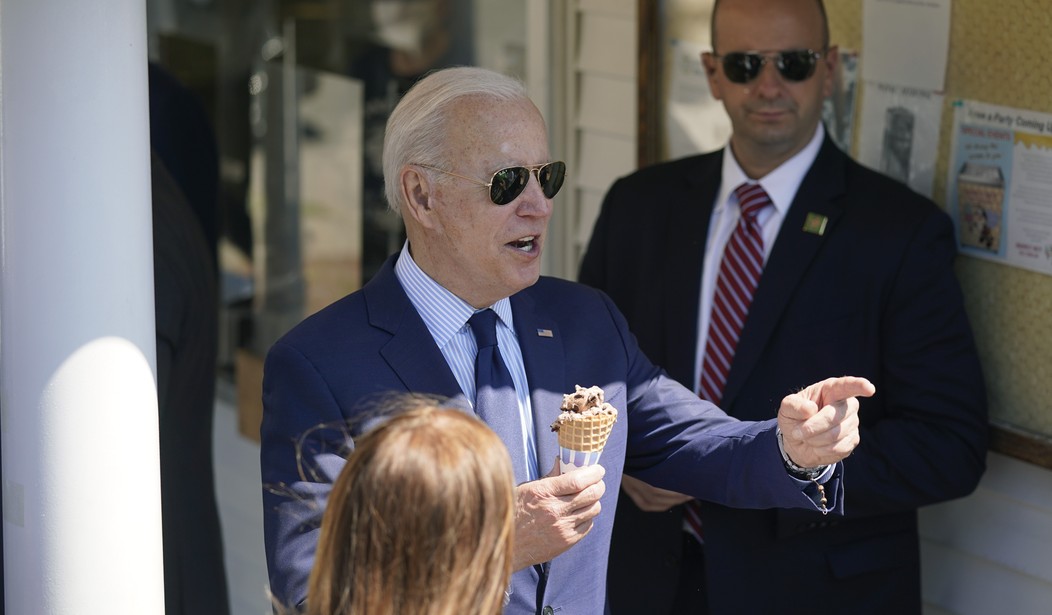There’s a seeming chaos, even a malicious randomness to the Biden administration’s posture toward the Middle East, but a careful examination reveals an actual policy at work.
Policy, whether domestic or foreign, consists of a series of actions designed to achieve a desired goal.
With that in mind, let’s take a quick look back at Presidentish Joe Biden’s first five months in office, and I think you’ll see his administration’s Middle East policy reveal itself.
In no particular order:
Biden’s first action on Middle East policy was actually domestic: his Day One executive order halting the Keystone XL pipeline. While there are ramifications beyond the U.S. and the Mideast (China will benefit, too), it’s part of a larger picture of Biden’s war against domestic energy production. Just days later, Biden would sign another order banning “any new fracking on federal lands despite his campaign promise not to ban the practice.” (A judge has since blocked that order, but we’ll see what happens.)
The less energy we produce domestically, the more we have to purchase from overseas — including the Mideast. More on that shortly.
In April, Biden restored millions in “humanitarian” aid (that Trump had cut) to Palestinian groups. This, even after the White House had “privately confirmed to Congress” that “the Palestinian Authority has continued to use international aid money to reward terrorists” back in March.
American taxpayers are back in the business of subsidizing terrorism. And the thing about subsidies is, you subsidize that which you want more of.
But Hamas and Hezbollah are small beer compared to Iran, with whom Biden has engaged in reckless appeasement.
Foreign Policy noted in April that “Biden has inherited a relatively peaceful Middle East,” yet nevertheless “is considering lifting terrorism-related sanctions on the Central Bank of Iran.”
Recommended: Here’s What the Foreign Press Is Saying About Presidentish Biden
Iran had been left largely broke by Trump’s sanctions, and far less able to continue its imperialist efforts in Iraq, Syria, and Palestine. Still, Biden last February lifted some of Trump’s sanctions and will press for even more relief for the Mullahs’ regime. That’s up to and including a revived version of Barack Obama’s disastrous nuclear deal, which will fill Tehran’s coffers full once more.
Former Trump national security council member Richard Goldberg called it “insane,” but I’d call it “evil.”
Perhaps most telling was White House Press Secretary Jen Psaki’s blithe dismissal of the historic Abraham Accords, which brought official peace between Israel and seven Arab nations. Originally signed in August of 2020 by only Israel and the UAE, the Accords were designed by the Trump administration to bring more Arab nations on board, as soon as they were ready — and sure enough, six more nations quickly signed on. Given time, more were sure to follow, with perhaps even Saudi Arabia as the capstone.
Trump’s people — Mike Pompeo and Jared Kushner — took advantage of two things. First, American energy independence was a wake-up call to the Arab world that American dollars wouldn’t be so easy to come by any longer. The second was Trump’s willingness to cut out the Palestinian leadership, which isn’t interested in peace, anyway.
Trump made peace where he could, opening up doors to more peace deals in the future.
Nevertheless, Psaki described the Accords like so: “Aside from putting forward a peace proposal that was dead on arrival, we don’t think they did anything constructive, really, to bring an end to the longstanding conflict in the Middle East.”
Combined with reinstating aid to Palestinian terror organizations, the message from the White House is clear: Any further peace process will have to go through the intransigent Palestinian leadership — and therefore there will be no peace.
The massive Hamas rocket barrage against Israeli civilian areas that followed just weeks later was the exclamation mark at the end of the White House’s message.
All of this is the long way of saying something I’ve been quipping at Instapundit this week: Biden is making us more dependent on Middle East oil while at the same time weakening our position there and strengthening destabilizing influences like Hamas and Iran’s Islamist regime.
So what is Joe Biden’s Middle East policy?
It’s the same as his domestic policy: to hobble America’s economic, military, and social strengths by emboldening and enriching the very worst among us.










